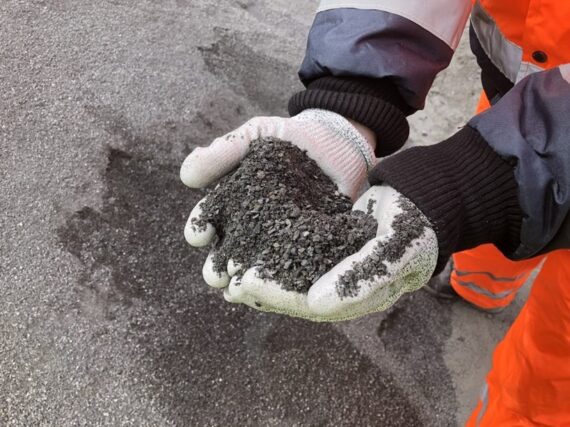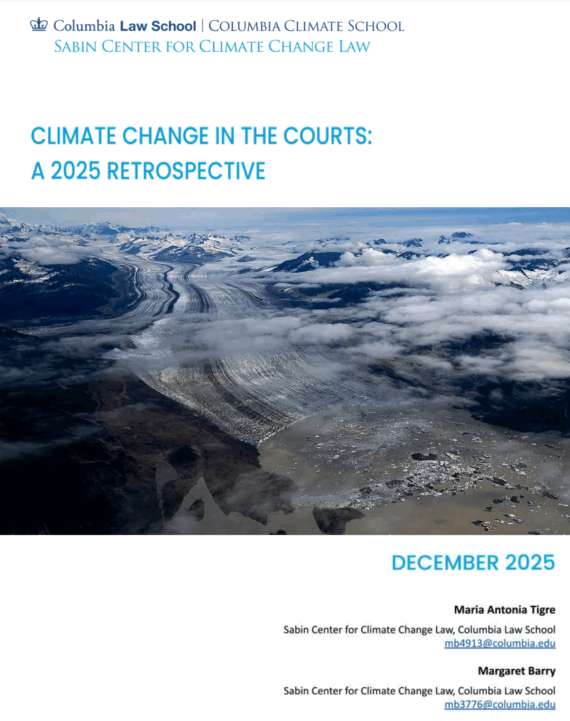The retirement of the MetroCard as the ball dropped on New Year’s Eve was bittersweet for me. In 1983, as a young lawyer, I took a year’s leave of absence from my law firm to serve as special counsel to Richard Ravitch, chairman of the MTA. He gave me […]
Enhanced rock weathering (ERW) is a promising solution for durable carbon dioxide removal (CDR) which involves spreading finely ground alkaline rocks (such as basalt and other silicate rocks) over land. Scientists posit that the alkaline materials will react with carbon dioxide in the air, sequestering it in mineral or aqueous […]
Last week the Sabin Center published a report that looks back on climate litigation developments in 2025. This third installment in our year-end series provides a snapshot of how the field of climate litigation has evolved over the course of this year. The report also revisits significant rulings from around […]
Climate change has major implications for the sustainable use and conservation of natural resources. Rapid and unprecedented changes in bioclimatic conditions can significantly affect the integrity, productivity, and carrying capacity of ecological systems that provide essential resources such as food, timber, and fresh water. Many natural systems are already […]
Introduction On October 23, 2025, the Judicial Tribunal of Paris (Tribunal judiciaire de Paris) found in Greenpeace France and Others v. TotalEnergies SE and TotalEnergies Electricité et Gaz France that TotalEnergies and its French subsidiary engaged in misleading environmental advertising. For the first time, a court has held a major […]
The Biden Administration tied historic federal clean energy funding in the 2021 Infrastructure Investment and Jobs Act Law (IIJA) and the 2022 Inflation Reduction Act (IRA) to a local benefits framework through the Department of Energy’s Community Benefits Plan (CBP) requirements. The Trump Administration’s rapid rescission of CBP requirements, […]
A 2024 report by the Government Accountability Office (GAO) found that over 2,500 wells and 500 platforms in the Gulf of Mexico were overdue for decommissioning (i.e., the process whereby wells are permanently plugged and associated infrastructure removed). Others have estimated that over 32,000 offshore wells in U.S. waters are […]
Texas v. BlackRock (E.D. Tex.) (BlackRock), a case in which 13 states claim that the institutional-investor defendants colluded to profit through coordinated output reductions at coal companies they partially owned, remains in its early stages, with discovery continuing through 2027. Already however, opponents of climate-risk mitigation have rushed to extract […]








